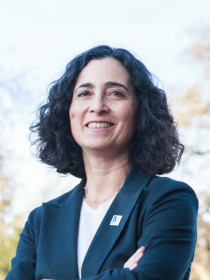
Melissa R. Michelson
Connect with Melissa
About Melissa
Michelson's research focuses Latinx politics, voter mobilization experiments, and LGBTQ rights, and past president of the LGBT Caucus and of the Latino Caucus of the American Political Science Association. She is the award-winning author of six books, including Mobilizing Inclusion: Transforming the Electorate through Get-Out-the-Vote Campaigns (2012) and, most recently, Transforming Prejudice: Identity, Fear, and Transgender Rights (2020). Her work also appears in a variety of top-rated academic journals, and in popular outlets such as the Washington Post’s Monkey Cage blog.
In the News
Publications
Finds that people are often willing to change their attitudes about LGBT rights when they find out that others with whom they share an identity(for example, sports fans or members of a religious group) are also supporters of those rights. Provides a blueprint for thinking about how to bring disparate groups together over contentious political issues.
Compares Latino trust in government in the context of the 2012 presidential election campaign—one in which outreach to Latino citizens in pursuit of their votes signaled that they were important and powerful members of the polity—to Latino trust in government in the context of the 2006 immigration marches—one in which Latinos found themselves taking to the streets to protest anti-Latino and anti-immigrant legislation.
Brings together theories of expressive voting with literature on racial and ethnic identification to argue that prior studies, which have found either weak or null effects of identity messages targeting minority groups, have missed a crucial moderating variable—identity strength—that varies across both individuals and communities. Shows the effects of both ethnic and national identity appeals among Latinos in California and Texas are conditional on the strength of those identities in different communities and among different Latino subgroups.